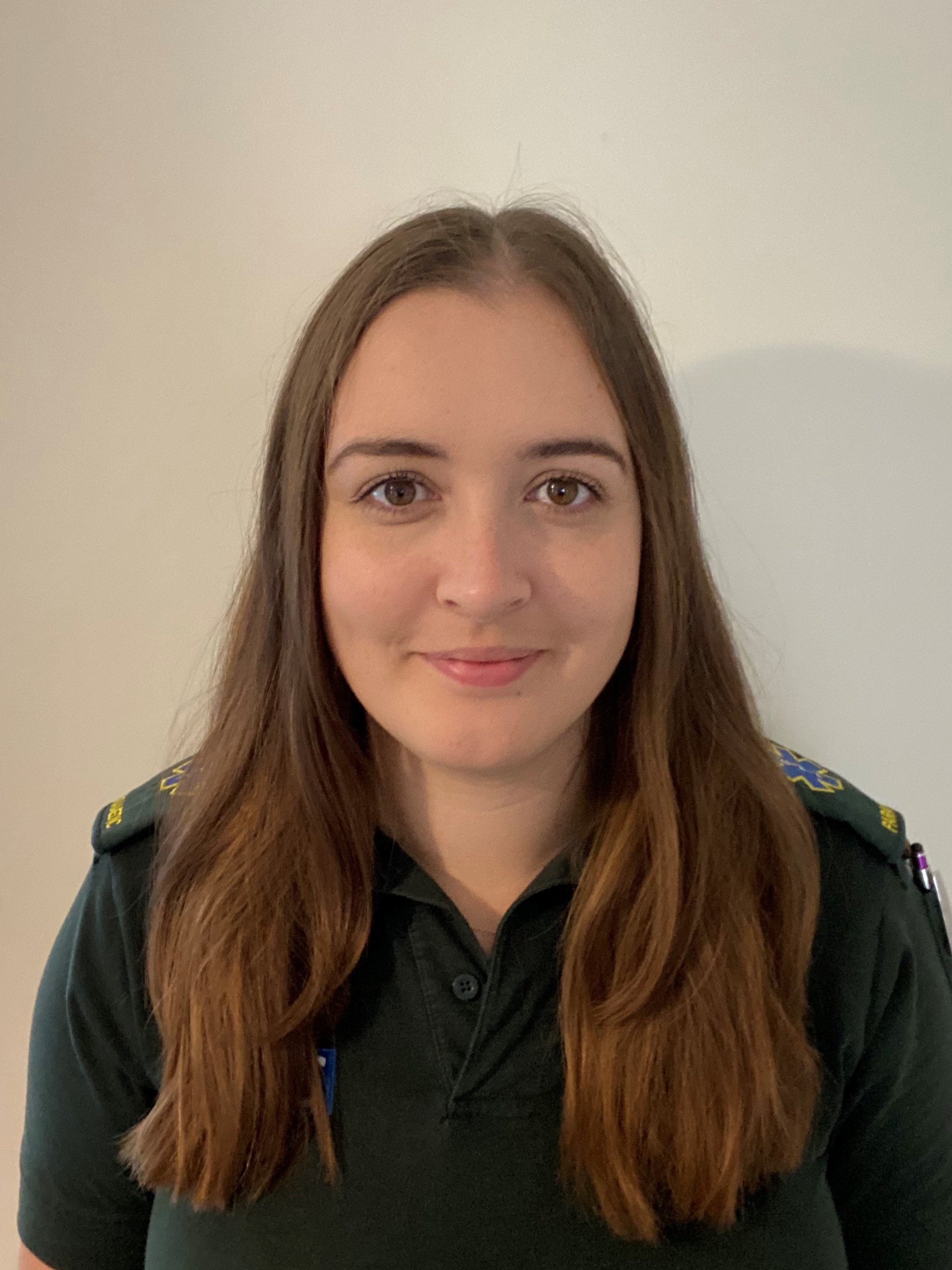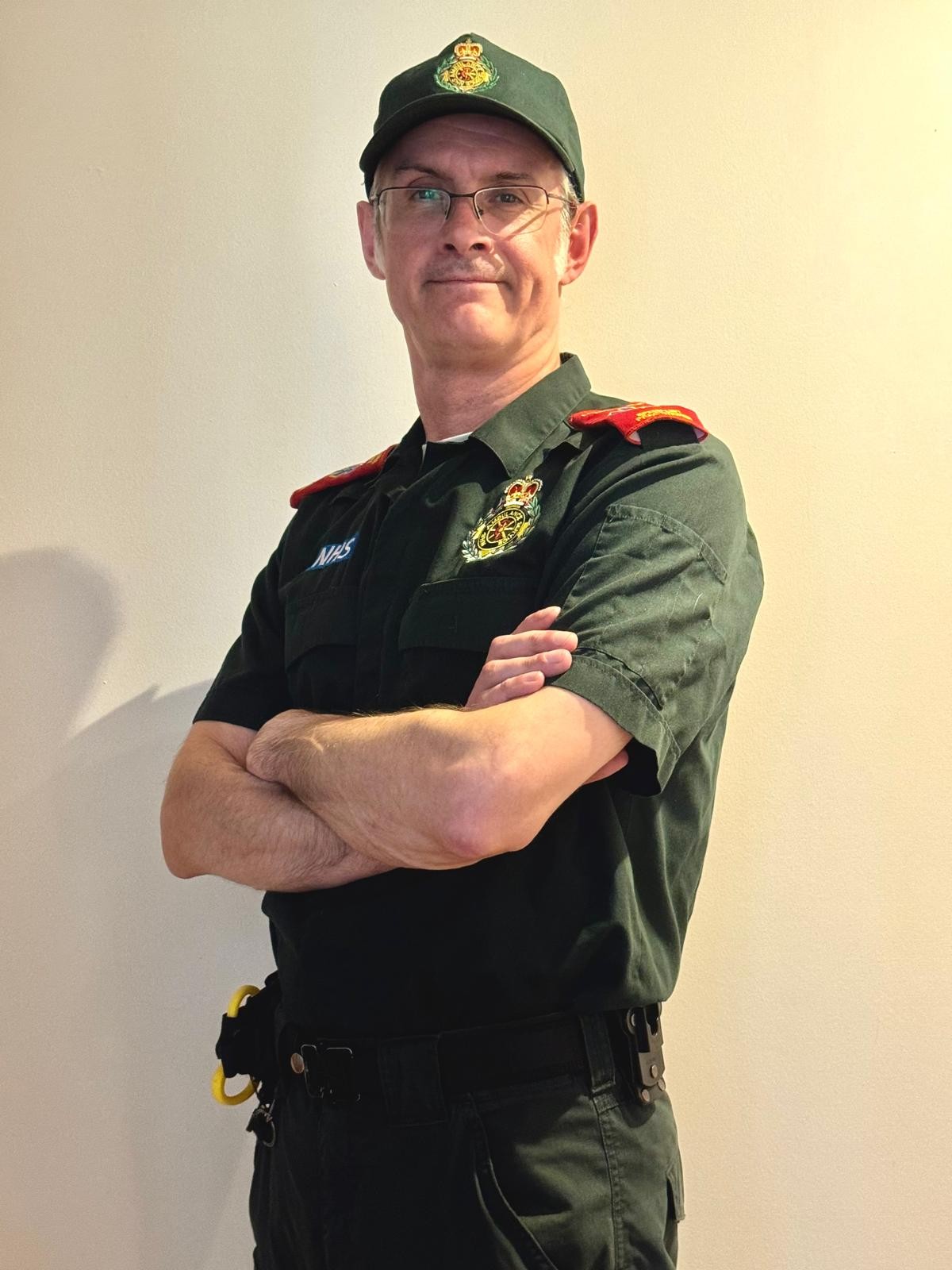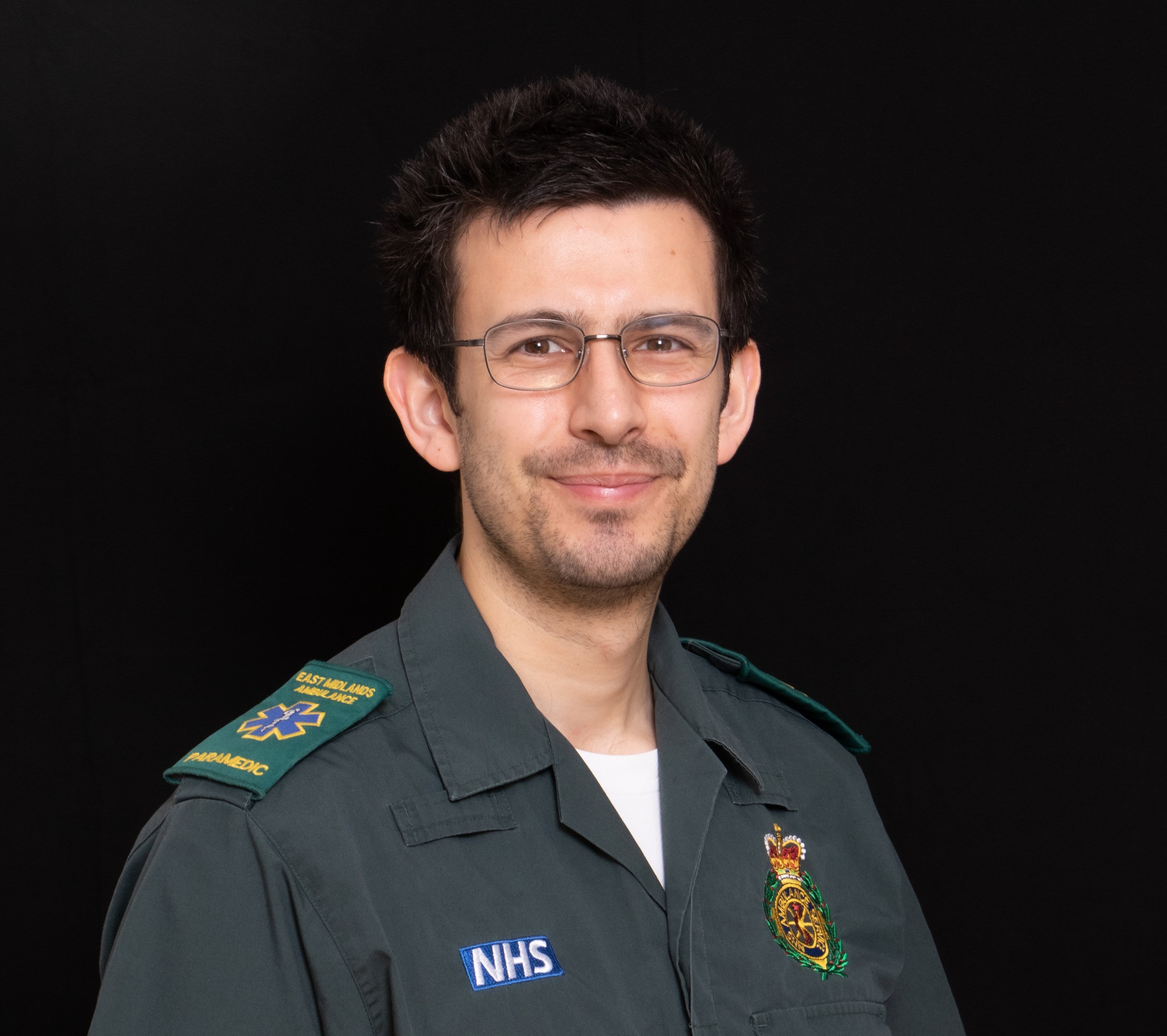When people think of a paramedic, they often imagine blue lights and emergencies. But our teams do much more – they help people with long-term health problems, work behind the scenes, and team up with others to keep patients safe and well in their own communities.
This international Paramedics Day, we’re celebrating the theme of “Unity and Community.” We’re sharing stories from three paramedics to show how ambulance staff help people in many ways – using their emergency skills and finding new ways to care for patients and support local communities.
Laura Golding: connecting patients to the right care
Laura Golding is a paramedic and Pathways Lead in Lincolnshire. She works to make sure patients get the right care, in the right place, at the right time.
Her role goes far beyond responding to emergencies – she works closely with hospitals, GPs, and community services to develop and refine care pathways.
Ambulance crews can now refer patients straight to the right specialist – like a frailty team, surgical unit or mental health support – instead of always going to A&E.
Laura recently spoke on the ReSPECT Podcast, led by Lincolnshire Integrated Care Board (ICB). ReSPECT is a care plan that helps ambulance crews quickly understand and follow a patient’s wishes in an emergency.
Laura said: “For me, unity means everyone working together with the same goal – doing what’s best for our patients.
“By working with teams like frailty specialists, community teams, virtual wards, and GPs, we can often help people stay at home when it’s the best choice – instead of sending them to A&E when they don’t need to go.
“It’s not always straightforward, but when everyone’s on the same page, you see just how much we can achieve together for the patient.”
Laura’s approach is to work with partners to learn and improve. That includes updating how people are referred to care, or insuring information is shared more clearly.
For example, working alongside frailty specialists has changed her perspective as a paramedic, adding:
“They’ll ask questions I might not have thought of, but they help get to the root of the issue and make the right referral.
“Every time we learn from each other; it leads to better patient care and stronger teamwork.”
Laura’s work isn’t just about helping with individual pathways – she’s also helping to tackle health inequalities. For example, she helped make it possible for our crews to take patients to a frailty unit in Boston by supporting access to it.
Even though Laura is a leader, she still works on the frontline and tries to do paramedic shifts whenever she can:
Laura said: “I still love being out on the road. It keeps me grounded and reminds me why I do this work.
“There’s nothing better than seeing a pathway you helped create make a difference for a patient, right there and then.”
David Rovardi: bringing pharmacy and paramedicine together
 David Rovardi is one of the few people in the country that work as both a registered pharmacist and a paramedic. He splits his time between clinical shifts and leading medicines management at EMAS, using his experience to make care more efficient and effective for patients and crews.
David Rovardi is one of the few people in the country that work as both a registered pharmacist and a paramedic. He splits his time between clinical shifts and leading medicines management at EMAS, using his experience to make care more efficient and effective for patients and crews.
David has introduced new medicines enabling crews to treat more conditions on scene and helped to design medicine bags that better meet crews’ needs.
He said: “Being both a pharmacist and paramedic gives me a unique perspective. Small changes based on crew feedback can make a big difference – it’s all about improving what truly benefits patients.”
Highlighting the importance of working together, David added:
“Community is about supporting both our patients and the colleagues we work alongside – whether that’s your station crew, the wider regional team, or anyone across EMAS.
“When we share advice and work together, we’re able to provide the very best care.”
David’s journey also reflects the evolving opportunities within EMAS, and he encourages others to bring their unique skills to the team.
He said: “I retrained as a paramedic at 42, after years in pharmacy and Mountain Rescue.
“EMAS has been great at helping me bring both parts of my experience together, and that’s meant better care for our patients.”
Dr Greg Whitley: leading research for better care
Dr Greg Whitley is a Paramedic Research Fellow at EMAS and Associate Professor at the University of Lincoln.
Greg’s work has helped shape national guidelines and improve care for thousands of patients.
He said: “Research is a team effort. Each project brings together healthcare staff, academics, patients, and their families – sometimes locally, across the country, or even around the world.
“That teamwork is what drives real improvements in patient care, because we’re all striving for the same goal: to do the best for those we serve.”
Greg’s research has helped change how care is given. He helped to deliver a clinical trial that showed giving life-saving drugs through a vein works just as well as through the bone during a cardiac arrest. This helped update national rules and improve patient experience.
His recent work, including the PANDA study, has focused on working with families and clinicians to improve pain management for children and young people.
Greg added: “Managing children’s pain in an ambulance setting can be really hard, but knowing our research could help thousands of children and young people get better care keeps me motivated.”
Greg encourages any paramedic who’s curious about research to take the first step, highlighting just how accessible and rewarding it can be, saying:
“If you’re a paramedic interested in research, there are plenty of ways to get started.
“You can help recruit patients for studies, or even start your own project with support from our Clinical Audit and Research Unit (CARU) team.
“My advice is to reach out, ask questions, and connect with others – your perspective could make a real difference.”
Beyond the blue lights
Paramedics are at the heart of emergency care – bringing life-saving skills, calm under pressure, and kindness to people who need urgent help. But today, they do even more.
They are researchers, teachers, clinical experts, and community care providers. They work with GPs, hospitals, and local services to help people stay healthy at home, avoid unnecessary hospital visits, and get the right care at the right time.
This means every paramedic plays an important role – whether responding to emergencies, supporting people with long-term health problems, or finding new ways to improve care behind the scenes.
On International Paramedics Day, we thank all paramedics for their hard work, teamwork, and flexibility that help provide better care for everyone – both on the frontline and beyond.